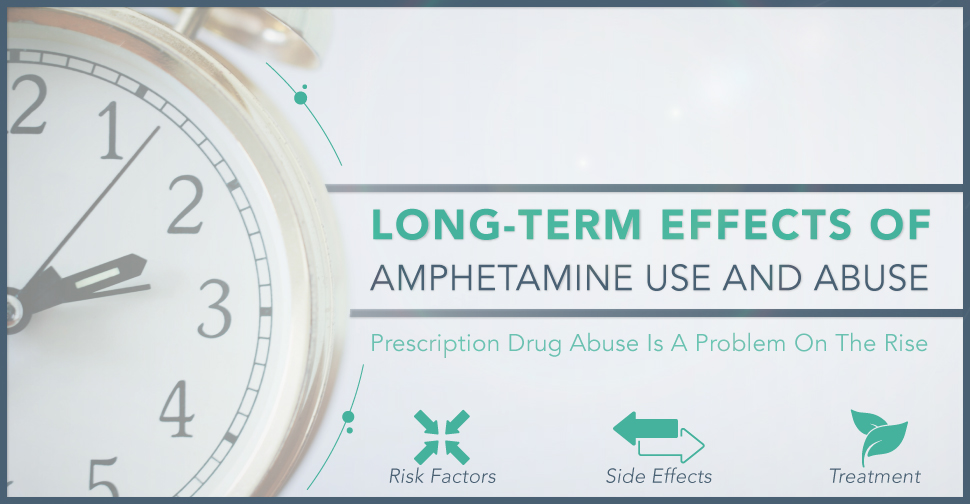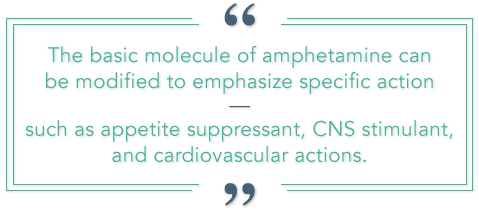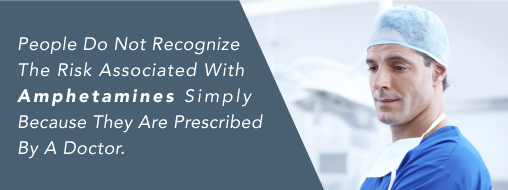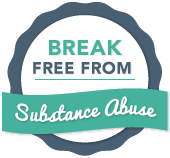
With an increasing number of people being diagnosed with behavioral disorders such as ADHD, stimulants are readily prescribed to treat the symptoms of these disorders. Amphetamines, a type of stimulant, are often the medication of choice for treatment.
Prescription drug abuse is a problem on the rise, with more people abusing prescriptions every year, including amphetamine drugs. Abuse can cause both short- and long-term health effects, and to avoid some of the staggering long-term effects, treatment should be sought for victims of abuse.
What Are Amphetamines?
Amphetamines are psychoactive drugs which affect the central nervous system (CNS). As explained by the Center for Substance Abuse Research (CESAR), “The basic molecule of amphetamine can be modified to emphasize specific actions—such as appetite suppressant, CNS stimulant, and cardiovascular actions.” Prescription amphetamines are typically in pill form, but when abused, they may be crushed and snorted, or dissolved into water to make a liquid which is then injected, or inhaled after vaporizing the drug.

Amphetamines are stimulants, which means they work by producing the release of reward chemicals in the brain which sends these chemicals to the nervous system. This process occurs naturally only when a person experiences pleasure (reward), such as smelling food or seeing someone a person loves. The good chemicals are released during the pleasurable experience then recycled back into the brain. Amphetamines stop this recycling process, resulting in an excess buildup of reward chemicals. This is how those abusing the drug achieve the “high.”
Unfortunately, what people abusing amphetamines may not know is that over time the body may build a tolerance to the effects of the drug. To get the same “high,” a person may take larger and more frequent dosages, which could lead to addiction, overdose, or even a fatality. The risk of abuse is so high, in fact, that the U.S. Drug Enforcement Administration has granted a schedule II classification to Dexedrine, Adderall, and Ritalin, to name a few drugs within this class, due to the “high potential for abuse, with use potentially leading to severe psychological or physical dependence.”
Risk Factors Of Prescription Amphetamine Abuse
According to CESAR, when taken as prescribed, amphetamines are not necessarily harmful (though all medications have side effects). It is when they are taken in ways other than prescribed, or for another reason, that amphetamines can become harmful.
One of the greatest sources of prescription amphetamine abuse witnessed today is due to people taking these drugs to increase their cognitive performance. This risky use is increasingly seen in teenagers and young adults, as some use these drugs as a study aid. This behavior has also been observed in adults that use amphetamines to boost their focus and performance within the professional realm.

Like so many prescriptions, people do not always recognize the risk associated with amphetamines simply because they are prescribed by a doctor. Often people abusing prescription drugs, especially kids and teens, get the medication from a person close to them, either by stealing it, or receiving it from them directly.
There are some identifying factors for prescription drug abuse. If someone takes a medication more frequently or in a dose larger than prescribed by their doctor, they are abusing it. Also, if someone takes a prescription medication which does not belong to them, that is defined as abuse. Other identifying factors include taking prescriptions by methods other than prescribed, like crushing and snorting pills to produce faster effects, or contributing to abuse by giving prescriptions to others for whom they are not prescribed.
What Are The Effects Of Amphetamine Abuse?
When a person uses an amphetamine in an illicit manner, they are commonly seeking the drug’s euphoric effects, however, there are many other effects that accompany abuse of this drug. The moderate to severe long-term effects of amphetamine abuse may result from continued and prolonged use. Short-term effects may occur from as little as one or several uses, and may include:
- Increased blood pressure
- Increased respiratory rate
- Changes in sexual behavior
 Decrease in appetite
Decrease in appetite- Dry mouth
- Increased energy
- Enhanced sense of well-being
- Increased body temperature
- Irregular or increased heart rate
- Headaches
- Heart palpitations
- Hostility
- Nausea
- Paranoia
- Pupil dilation
- Tremors or twitching of the muscles
- Uninhibited social behavior
Some of these can contribute to moderate to severe long-term health effects, such as:
- Breathing troubles
- Cardiac arrhythmias
- Convulsions
- Collapsing physically
- Dizziness
- Extreme and atypical fatigue
- Loss of coordination
- Mood changes
- Psychosis
- Changes in mentality, which can lead to mental disorders
- Physiological and behavioral disorders
- Skin disorders
- Skin pallor
- Tics (repetitive motor activities)
- Ulcers

Amphetamine use and abuse needs to be taken very seriously. Prolonged and excessive use can result in a person developing an addiction. In extreme cases, these drugs may cause coma, overdose, or even death.
Treatment For Amphetamine Abuse
There are many kinds of treatments for prescription drug abuse. Treatment may help a person through the detoxification process, during which the body rids itself of any toxic chemicals from abuse. Recovery can also include cognitive behavioral therapy, which teaches a person to change everyday habits and build a lifestyle free from the risks of substance abuse or addiction. Counseling may help people suffering from addiction to cope through positive outlets.
Whenever a person seeks treatment for substance abuse, there are many things to consider. For instance, depending on the severity of the abuse, a person may need inpatient care in a hospital or rehabilitation center, which can be costly. Selection of a facility should also take into account support; some facilities allow for family to be present, while others do not. Some other factors may include any preexisting health conditions or co-occurring disorders which also need appropriate care. To properly weigh such an important decision, it is important to have resources and information, as well as professional guidance.
Break Free From Substance Abuse
 In an era fraught with prescriptions of all kinds, it could be easy to slip into abuse. Yet individuals affected by substance abuse or addiction can get the treatment they need. If you or someone you know has been struggling with substance abuse, do not hesitate to reach out. To start the recovery journey, contact us today at DrugRehab.org. You will get in touch with professionals ready to hear your concerns, receive resources for treatment, and get help designing a treatment plan that is right for you.
In an era fraught with prescriptions of all kinds, it could be easy to slip into abuse. Yet individuals affected by substance abuse or addiction can get the treatment they need. If you or someone you know has been struggling with substance abuse, do not hesitate to reach out. To start the recovery journey, contact us today at DrugRehab.org. You will get in touch with professionals ready to hear your concerns, receive resources for treatment, and get help designing a treatment plan that is right for you.
Sources
National Center For BioTechnology Information — How Stimulants Affect The Brain And Behavior
National Institute On Drug Abuse — DrugFacts: Stimulant ADHD Medications: Methylphenidate And Amphetamines
United States Drug Enforcement Administration — Drug Scheduling

